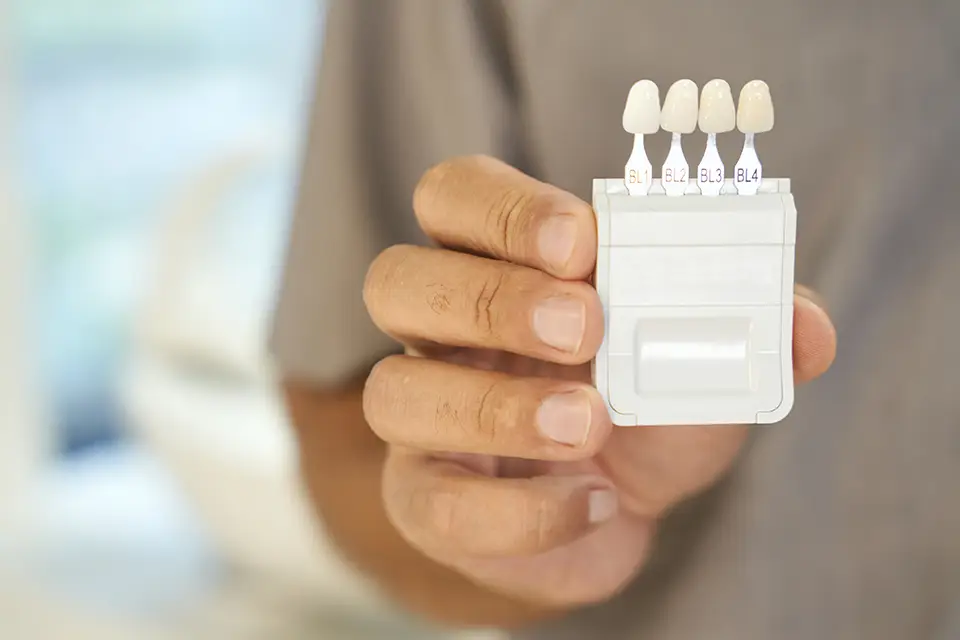Tooth pain doesn’t really wait for the right moment. It shows up at dinner, in the middle of the night, or just when you need to focus. People often try to ride it out at first, but the ache usually lingers—and then they begin searching for an endodontist Alliston. That’s the specialist who works on the inside of a tooth, the pulp and root canals, where the real trouble often starts.
At King Dental Centre, we’ve seen how saving a natural tooth can change everything. The goal is simple: relieve the pain, clear infection, and give the tooth another shot at lasting. Choosing an endodontist Alliston isn’t about chasing a title. It’s about finding someone with the right training to fix the problem without pulling the tooth unless it’s absolutely necessary.
“Book your Root Canal treatment with our expert dentists today!”
What Endodontic Treatment Really Means
Endodontics is all about what’s happening beneath the surface. Enamel and dentin are tough, but underneath lies pulp—soft tissue packed with nerves and blood vessels. When bacteria or trauma reach that space, you’ll feel it. Sometimes sharply, sometimes as a dull, nagging ache that doesn’t quit.
Treatment from an endodontist Alliston removes the damaged pulp, cleans the canal system, and seals it so bacteria can’t move back in. People call it a root canal, but the specialty is bigger than that. Retreatment, cracked-tooth procedures, trauma management—it all falls under endodontics. The focus is on saving, not replacing.
When to See an Endodontist Alliston
Toothaches come in all shapes. Not every one means you need a root canal, but certain signs shouldn’t be ignored:
- Pain that stabs when you bite down, sharp enough to stop chewing.
- Sensitivity to hot coffee or cold water that doesn’t fade quickly.
- Gums that swell or feel sore near a single tooth.
- A tooth that looks darker than the rest—sometimes gray, sometimes brown.
- A little bump on the gum that goes away, then shows up again.
These patterns often point to pulp trouble. If they sound familiar, a visit to an endodontist Alliston is the next step. Waiting rarely makes things better.
Why Choose Endodontics Over Extraction
Plenty of patients ask, “why not just pull it? “On the surface, extraction feels simpler. But the truth is, once a tooth is gone, chewing shifts and neighboring teeth drift. Replacement—whether implant, bridge, or denture—takes time and money.
Benefits of going to an endodontist Alliston for care:
- Natural tooth stays put – replacements help, but nothing feels exactly the same.
- Relief that lasts – once infection is cleared, comfort usually returns quickly.
- Stops spread – untreated infection doesn’t stay put; it moves.
- Costs less over time – saving the tooth is often cheaper than replacing it.
- Strong results – treated teeth can last decades with normal care.
Endodontics is about giving your tooth another chance. For a lot of people, that chance is worth it.

Root Canal Therapy: What Actually Happens
Root canals get a bad rap. Truth be told, they’re a lot less dramatic than the stories. A visit to an endodontist Alliston usually looks like this:
- Exam and imaging – X-rays show what’s happening. Sometimes more than one angle, because anatomy isn’t always straightforward.
- Numbing the area – local anesthesia keeps you comfortable.
- Cleaning inside – the pulp is removed, canals are cleaned out. Extra roots? That can take more time.
- Sealing – canals are filled with a safe material, locking bacteria out.
- Restoration – most often a crown is placed afterward, since the tooth can be fragile without one.
That’s it. Patients often say, “That wasn’t nearly as bad as I expected.” And they mean it.
More: Is Dental Contouring Worth It? Dental Contouring Cost and Benefits Explained
Why Patients Trust King Dental Centre
It’s not just about the tools, though we use advanced imaging and instruments. It’s also about the way you’re treated. Patients come to King Dental Centre’s endodontist Alliston for:
- Clear diagnosis—no guessing, no rushing.
- Gentle methods that reduce stress, especially for nervous patients.
- A focus on saving natural teeth whenever possible.
- A supportive team that listens and explains.
- Treatment plans built around real people, not cookie-cutter routines.
The combination—technology plus compassion—makes a tough appointment easier than most expect.
Recovery After Treatment
Most people go back to work or school the next day. Tenderness happens, but it’s usually mild. A few tips help:
- Don’t chew hard foods on that tooth until it has a crown.
- Take prescribed medications as directed; don’t wait until discomfort spikes.
- Brush and floss like normal—cleanliness matters.
- Keep your follow-up; that’s how we check healing.
- Call if you notice swelling or pain that feels unusual.
For most, healing is smooth. Once the crown is on, the tooth often feels like any other.
Who Usually Needs Endodontic Care?
Endodontics isn’t for every dental problem, but it’s the answer when the pulp is involved and the tooth can still be saved. Common candidates include:
- People with cavities that have reached deep into the pulp.
- Patients who cracked or injured a tooth but want to keep it.
- Anyone with recurring tooth pain or swelling.
- Those who prefer saving teeth over pulling them whenever possible.
If any of this sounds familiar, seeing an endodontist Alliston is worth it.

Take the Next Step
Pain from an infected tooth doesn’t fade—it builds. If you’ve noticed the symptoms, it’s time to act. At King Dental Centre, our endodontist Alliston focuses on saving natural teeth and restoring comfort. Call today, book a consultation, and find out how treatment can bring real relief.
FAQs About Endodontist Alliston
What are the first signs you need a root canal?
Lingering pain after hot or cold drinks, sensitivity when chewing, swelling around one tooth, or a darkening tooth are early warning signs. If you notice these, an endodontist Alliston can confirm whether root canal therapy is needed.
Are endodontists more expensive than dentists?
The fees can be a bit higher since endodontists have advanced training and use specialized equipment. That said, many patients find the investment worthwhile because treatment is more precise and helps save the natural tooth.
What is a better option than a root canal?
In most cases, the only alternative is extraction. While replacing a tooth with an implant or bridge is possible, it’s often more invasive and costly. If saving the tooth is possible, root canal treatment is usually the better choice.
How long does a root canal take at an endodontist?
It depends on the tooth. A front tooth with one canal may take about an hour. Molars, which have more canals, often take longer or may require a second appointment.





